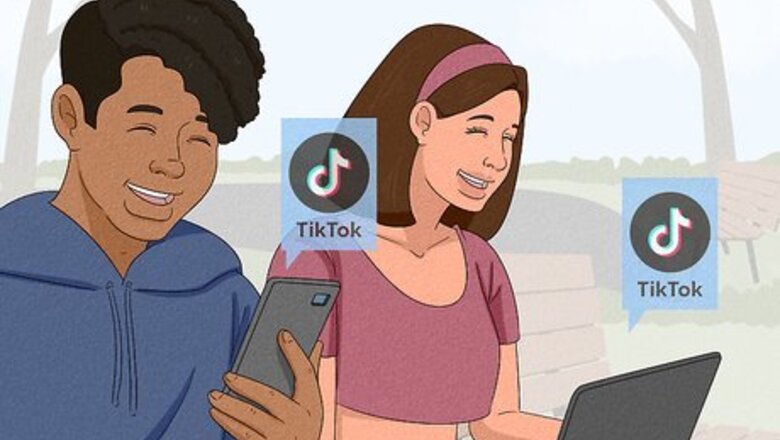
views
X
Research source
It allows its users to create short videos to share with millions of people on the internet. There are many addictive features, from setting filters to adding sound effects and music in the background. However, this also causes millions of young people to spend their lives doting on the app, spending hours of their time scrolling and scrolling. Your basic routine becomes this- you wake up, check TikTok, and eat. You may be one of these people, and you may be wondering if TikTok is an addictive app. If you want to get rid of this app from your life, find out how.
Understanding the System
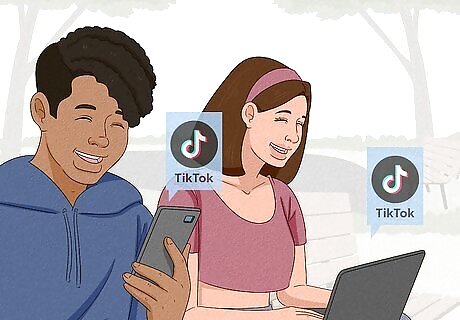
Understand the basics of TikTok. TikTok is essentially a very popular social media app that is used by millions of young people. It was first made in 2016 by the Chinese company ByteDance. It was launched in its present form in 2018. In 2021, it gained about 1 billion monthly users. People post fun, short videos or clips with eye-catching thumbnails for users to click on, comment, and share. Creators use a variety of effects, from stickers and filters to sound effects and parts of songs in videos. You can easily download TikTok on a smartphone (most young people have phones), and you can also use TikTok on your computer by going to the website. For Windows users, you can also install TikTok using the Microsoft Store.
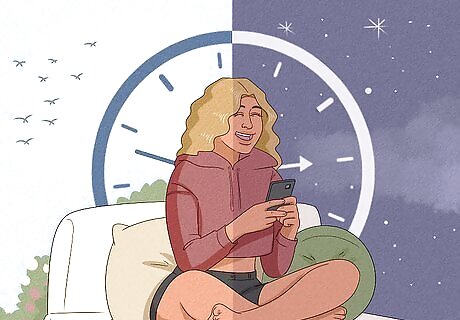
Know that social media is made to be addictive. It is especially addictive in teenagers and young adults because their brains are still developing. When you constantly scroll on a website or an app, your brain releases dopamine, which is a chemical that makes you feel joy. This makes you want to scroll more for instant gratification, meaning instant pleasure. So, the cycle continues, and you keep clicking, liking, and sharing videos. The simple installation process of the app on smartphones and laptops makes it easier to access the app, which prolongs the addiction. We need a moderate amount of dopamine to regulate our mood and feel happy, but having too much dopamine can be harmful. This is very similar to other types of addictions; large amounts of dopamine are released when a person takes drugs, plays video games, or eats fast food. Older people may not be interested in constant scrolling and compulsive liking and sharing on a platform. Their brains don't produce as much dopamine when scrolling constantly. They like settling on one thing at a time, instead of quickly skimming through content without reading much of it.
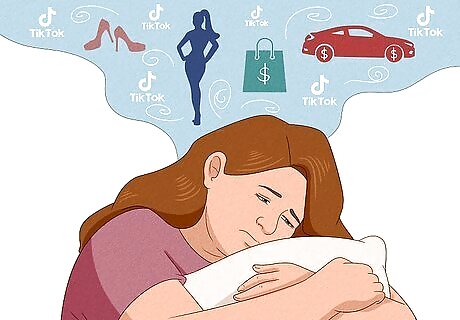
Know that mental health issues will arise with a TikTok addiction. Endless viewing of shorts and viewing what the world is like through such a small, selective lens will change your viewpoint of the world. You may put your standards lower or higher depending on the content you watch. A lot of the content posted is unrealistic, and they only show people waking up "perfect" or doing things perfectly without any effort. Frequent mental health issues associated with social media addiction include depression, anxiety , OCD, and low self-esteem. You may envy creators who have large cars and mansions. This causes you to never be satisfied with your life, and you may even go into depression. If you watch dieting content, you may try all of the "hacks" only to realize that they don't work. Others try to lose weight and end up damaging their body. Watching content about a celebrity might make you obsess over them. On the other hand, if you love watching a person who gives hacks on cheating or talking rudely to people, you may adopt the same principles.
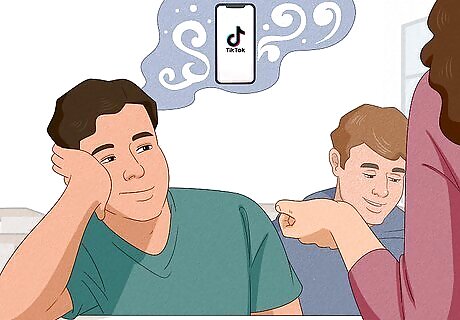
Understand that using apps like TikTok will lessen your attention span. Because you are going through videos so fast, you may find it harder to listen to a 50-minute lecture in class or sit in a waiting room for a doctor's appointment without TikTok. This may cause you to go through withdrawal symptoms (similar to drug withdrawal), such as hyperactivity, insomnia, mood swings, sweating, and fidgeting/trembling. if you go without your device with TikTok for even a few minutes. Your brain will retain less information as time goes on, and you may forget past things that you have learned. Other apps, such as YouTube, offer longer videos that are usually more informative than TikTok videos. TikTok videos average 21-34 seconds long, and that isn't enough to deliver an important message or something educational (like how to solve a math problem). Now, more young people prefer the fast-paced system, and are abandoning YouTube and other websites. In the end, your life may revolve on TikTok, and you may withdraw from outside social settings, doing work, and doing school activities if the addiction gets serious enough. You may get stuck in this cycle for a long time until you realize that you have wasted years of your life scrolling and not learning anything.
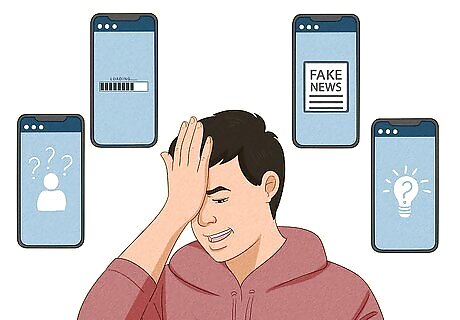
Know that you won't learn as many things on TikTok as in-person learning. Sure, you may learn a few "organizing hacks" or "tech tips", but those are short-term things that won't affect you much in the future. Short clips won't teach you much- longer videos or documentaries will. Will you remember these hacks or tips in five years? Probably very few or none of them. If you look at TikTok for news, you will get less worldwide information and only information from a few people or places. Also, TikTok contains a large amount of misinformation; many creators use exaggerated adjectives in titles and attractive thumbnails for clickbait. The "life hacks" or products they advertise may not even work. Plus, many people forget useful things they have learned in school, such as basic arithmetic once they devote their time to scrolling.
Finding Incentives to Removing TikTok
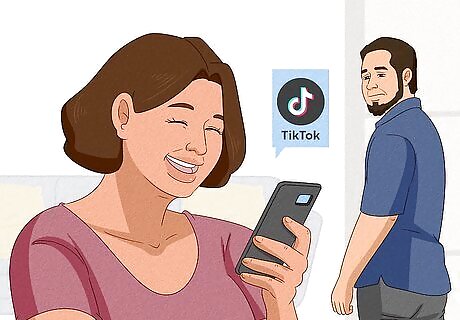
Realize that the app is slowly taking over your life. You won't realize these sorts of changes, because they are pretty gradual. It may take months or even years to realize how much you've changed after installing TikTok. You may have a new fashion style, use TikTok products, use TikTok slang, and change your personality. However, your personal life may have changed. People could have broken up with you because of your TikTok usage. You may decline requests to go to a party with your friends because of it. Slowly, your social circle changes to exclusively online chats and rarely, any in-person meetings or hangouts. Your family becomes less of "family", and more like people that just live in your house. The new "family" you have are TikTok creators and people you message in your DMs. In the end, you may become a homebody. You may also have mental health issues, such as depression and anxiety. You will probably feel lonely too, as you don't have any close friends, and all the friends you have are online (and you can't meet up with them if they live far away). Your friends may have this addiction too, and not realize it.
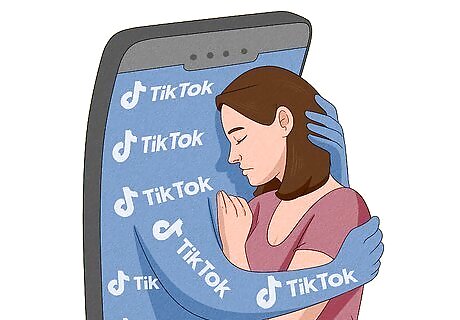
Understand that you may be using TikTok to battle your own personal problems. You may have used TikTok as a coping mechanism for some problems in your life. To start, you may have watched TikTok videos in your room to hide from abusive parents. Watching TikTok videos could distract you from your slipping grades or your drug addiction. Using TikTok may make you feel less "alone" for a small period until you realize that the app has been isolating you all along. But, know that these coping strategies won't help you in the long term. They will make you more addicted, and worsen your mental health.
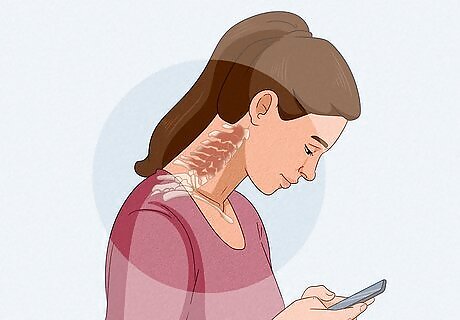
Know that you may have physical health problems due to long-term TikTok usage. You may wake up to aches in your neck and dry eyes. Headaches and fatigue may impair your ability to concentrate in school. All of these will affect your happiness and the quality of your life. Because you are mostly sitting/sedentary while watching TikTok, you may have other chronic health problems in the future. A higher risk of heart attacks and blood clots, along with obesity is often associated with a sedentary lifestyle. Dry eyes, vision problems, ear problems, neck strain, headaches, and trigger thumb are some of the short-term symptoms.
Getting Rid of TikTok
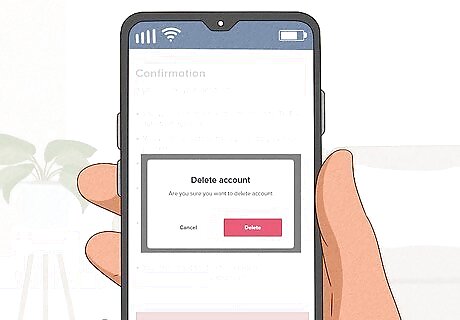
Delete the app. Yes, delete the app on your phone. Using social media apps on a phone is more addictive than using it on your computer. Your phone is a small device, and you can bring it anywhere. This means if you have TikTok on your phone, you can watch it anywhere, during a trip to the store or in school. To break your addiction, uninstall the app. Don't install it back- that defeats the whole purpose. You should also delete your TikTok account and remove your TikTok bookmark on your laptop for better results. Quitting cold turkey will be easier than reducing your exposure because of how highly addictive it is. If you can, delete your browser history or anything that contains TikTok- downloaded shorts, memes, links, etc.
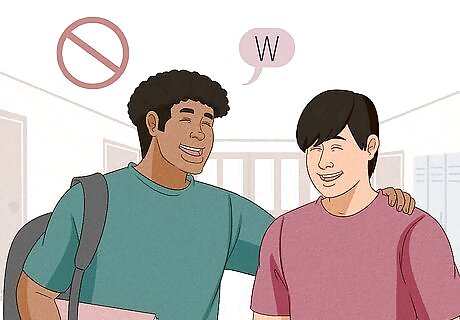
Stop using TikTok slang. You may have gotten used to talking about "rizz". You may get used to using words like "cap", "L", "W", and "speed-run" in your daily conversations. Talking like this in person is pretty informal, and others may think you are less educated. Use formal, new words instead of vague, slang terms. Avoid writing with slang words. Use a dictionary to find descriptive words to use, and use a thesaurus for synonyms and antonyms.
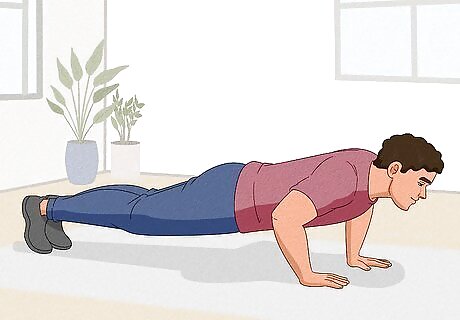
Find a new, productive hobby. No, going on other social media apps like Instagram or YouTube for prolonged periods will also get you addicted, especially if you've just broken a TikTok addiction. Avoid those sites for some time until you can trust yourself to manage those sites in moderation. Try something new instead of scrolling on TikTok. Love cooking shorts? Try taking a cooking class. Want to get in shape? Get a gym membership, or start exercising at home. Are you in love with satisfying art videos? Draw on your own or with a friend. You can also try something new - you don't have to base it off things you watched on TikTok. Get out of your comfort zone to make your life exciting. Doing the same hobby can feel boring after a while, so spice it up with multiple hobbies. You can play video games, but don't let it consume your life. Remember, do everything in moderation. Your hobby of playing games could become an addiction if you do it every day for hours. Learn a new language- it's pretty easy with the help of online resources such as Duolingo. Try riding bikes or singing. Go to your local library and check out some books to read. Make some pottery or write a journal. Scrapbook, knit, or crochet. Collect treasured items. Start coding.

Improve your grades. If your grades have been slipping, or if you've been using dishonest ways to change them (e.g. by cheating or using AI tools), actually take the effort to study. Having a polished report card can boost your confidence. It can motivate you to go to college and get a job. This allows you to achieve more life goals and things you want in life. If you're feeling unmotivated or bored of studying, make a vision board and put it in your room to motivate you. Take good notes- don't rush your notes; this makes your notes messy and illegible, and you won't be likely to read them over again. Pay attention in class. Put your phone away in a class by putting it in a small purse or a compartment of your backpack. Turn your phone on silent and mute the notifications. If you don't need a phone for school (for contacting your parents for pickup times or notes), then don't bring one.
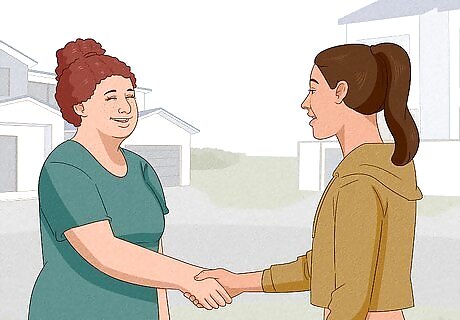
Make some friends offline. Since the COVID pandemic in 2020, more young people have started relying on social media to maintain social connections. However, these aren't close most of the time, and many are fake. This has caused a "loneliness epidemic" worldwide, as millions of people feel separated and disconnected from others. Finding people you know in person can make you feel happier and more connected to the world as a person. In school, find people who share the same interests as you. Meet some fellow art lovers or future leaders in the art and student council clubs. Get their phone numbers and hang out together during lunch and breaks. Invite them out to places to foster a stronger connection outside of school. During work, find people to hang out with after your shift. It's best to make a few close friends instead of having a lot of acquaintances- you can rely on close friends for emotional support and closer activities.
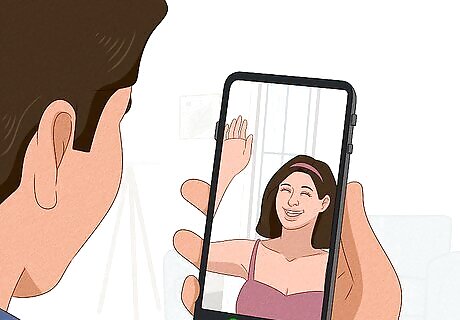
Be yourself. In online conversations and social media, people tend to blend in and follow one group of people, even if they don't want to. People are often made fun of if they don't "stay loyal" to whatever their interests were. For example, some fanbases are less welcoming to people who join multiple fanbases and groups. Getting shunned by people around you decreases your self-esteem, and you will feel isolated and lonely. Don't people-please. Remember that you are a person that needs to be respected- you shouldn't go through your life as a doormat, constantly stepping on. If you have a strong opinion, talk it out with a trustworthy friend or your family.

Actively learn and think. People may get "canceled" or jeered upon by the majority of the people if they say something that doesn't align with them. This causes everyone to act and think the same, which doesn't encourage any critical thinking. Critical thinking is useful in all parts of your life, from personal relationships to schoolwork and your career. Don't worry about being controversial or different- this is what makes all of us unique and interesting. Think about it- for example (hypothetically), if everyone thought that ice cream was the best food in the world, everyone would just buy and make ice cream (or perhaps ice cream variations), but they would never create or buy any other foods. Feel free to express your opinion both online and offline. Don't care what others think of you- you can't control that, and you have a right to express what you think.















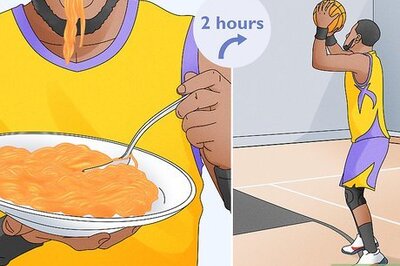




Comments
0 comment